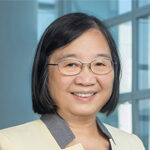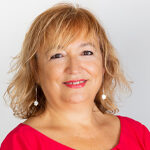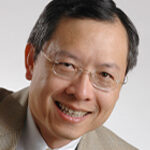Plenary Speakers

Prof. Dirk Englund
Professor, Quantum Photonics Laboratory, Massachusetts Institute of Technology, USA
Prof. Dirk Englund Bio:
Dirk Englund received his BS in Physics from Caltech in 2002. Following a year at TU Eindhoven as a Fulbright Fellow, he did his graduate studies at Stanford, earning his MS in electrical engineering and PhD in Applied Physics in 2008. He was a postdoctoral fellow at Harvard University until 2010, when he became Assistant Professor of Electrical Engineering and of Applied Physics at Columbia University. He moved to MIT in 2013 as Assistant Professor of Electrical Engineering and Computer Science and a member of RLE and MTL. His research focuses on quantum technologies based on semiconductor and optical systems. Recent recognitions include the 2012 DARPA Young Faculty Award, the 2012 IBM Faculty Award, the 2011 Presidential Early Career Award for Scientists and Engineers, the 2011 Sloan Research Fellowship in Physics, the 2008 Intelligence Community (IC) Postdoctoral Fellowship, and the 2012 IEEE-HKN Outstanding Young Professional Award. Prof. Englund has published over 50 peer reviewed journal articles, over 10 patents, and several book chapters.

Prof. Kei May Lau
Research Professor at the Hong Kong University of Science & Technology (HKUST), Hong Kong
Prof. Kei May Lau Bio:
Kei May Lau is a Research Professor at the Hong Kong University of Science & Technology (HKUST). She received her degrees from the University of Minnesota and Rice University and served as a faculty member at the University of Massachusetts/Amherst before joining HKUST in the summer of 2000. Lau is a Fellow of the IEEE, Optica (formerly OSA), and the Hong Kong Academy of Engineering Sciences. She was also a recipient of the IPRM award, IET J J Thomson medal for Electronics, Optica Nick Holonyak Jr. Award, IEEE Photonics Society Aron Kressel Award, US National Science Foundation (NSF) Faculty Awards for Women (FAW) Scientists and Engineers, and Hong Kong Croucher Senior Research Fellowship. She was an Editor of the IEEE Transactions on Electron Devices and Electron Device Letters, an Associate Editor for the Journal of Crystal Growth and Applied Physics Letters. Lau’s research work focuses on the development of monolithic integration of semiconductor devices and systems on industry-standard silicon and SOI substrates by MOCVD.

Prof. Laura Lechuga
Professor, Catalan Institute of Nanoscience and Nanotechnology (ICN2), CSIC, BIST and CIBER-BBN, Spain
Prof. Laura Lechuga Bio:
Prof. Laura M. Lechuga is Full Professor of the Spanish National Research Council (CSIC) and Head of the Nanobiosensors and Bioanalytical Applications Group at the Catalan Institute of Nanoscience and Nanotechnology (ICN2) in Barcelona (Spain) and at the Networking Biomedical Research Center (CIBER-BBN).
The principal focus of her research is the development of novel nanobiosensor devices based on Nanoplasmonics and Silicon photonics principles for point-of-care diagnostics. Prof. Lechuga is a world reference in the Photonic Biosensor area, making key contributions and opening new horizons in this field. Her research activities cover from fundamental research to the technological operation of complete sensing platforms, including the technological transfer into products of social applicability. Her Group is considered as a world reference in this field.
She has published over 300 articles, book chapters and proceedings, has 8 families of patents and four trade secrets, has co-founded two spin-offs companies and has presented her work in more than 480 invited talks.
The quality of her research has been recognised by prestigious prizes and awards, as the Spanish National Research Award in 2020, the King Jaume I award in New Technologies in 2020, the Ada Byron 2020 Prize, the Physics, Innovation and Technology Prize from the Spanish Royal Physics Society (RSEF) and BBVA Foundation (2016), the Lung Ambition Alliance Prize from ASTRAZENECA, and the National Prize in Nanotechnology, among many others.
From April 2020 to September 2021, she belonged to the Expert Scientific Panel advising the Ministry of Science and Innovation and the Spanish Government in the management of the COVID-19 pandemic.

Prof. Ming Wu
Professor, University of California, Berkeley, USA
Prof. Ming Wu Bio:
Ming C. Wu is Nortel Distinguished Professor of Electrical Engineering and Computer Sciences at University of California, Berkeley, and Co-Director of Berkeley Sensor and Actuator Center (BSAC) and Berkeley Emerging Technologies Research Center (BETR). He received B.S. from National Taiwan University in 1983 and Ph.D. from UC Berkeley in 1988. Prior to joining the faculty at Berkeley, Dr. Wu has conducted research at AT&T Bell Laboratories in Murray Hill, New Jersey (1988-1992) and the University of California, Los Angeles (UCLA) (1992-2004). Dr. Wu has published over 600 papers in journals and conferences and holds 35 US patents in Optical MEMS, optofluidics, silicon photonics and optoelectronics. In 1997, Prof. Wu co-founded OMM, Inc. to commercialize MEMS optical switches. OMM became the first company to supply Telcordia-qualified 8×8 and 16×16 switches. Recently, Prof. Wu has pushed the size of optical switches to 240×240 by combining MEMS with silicon photonics. In 2011, Prof. Wu co-founded Berkeley Lights, Inc. (NASDAQ:BLI) to commercialize optoelectronic tweezers (OET) invented by his group. The OET instrument is capable of sorting, cloning, culturing, analyzing antibody secretions of tens of thousands of single cells on a single optofluidic chip. The OET instruments have been used by major pharmaceutical companies for antibody discovery, cell line development, and synthetic biology.
Prof. Wu’s accomplishments have been recognized by the Paul F. Forman Engineering Excellence Award (OSA 2007), the William Streifer Scientific Achievement Award (IEEE Photonics Society 2016), the C.E.K. Mees Medal (OSA 2017), the Robert Bosch Micro and Nano Electro Mechanical Systems Award (IEEE Electronic Device Society, 2020), and the Bakar Prize (UC Berkeley 2021). Prof. Wu is Fellow of IEEE and Optical Society (OSA), a Packard Foundation Fellow (1992 – 1997), and a Bakar Fellow (2018-2019).
